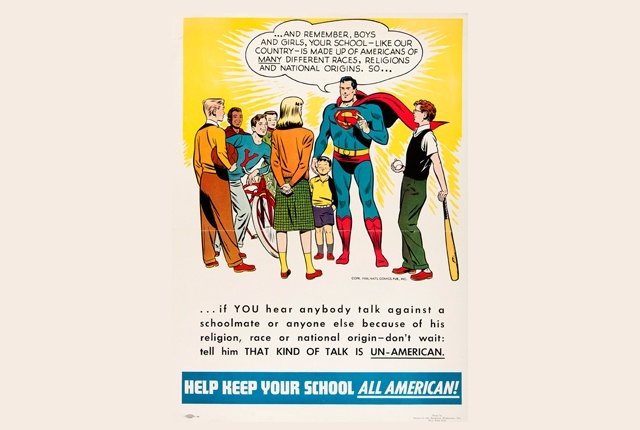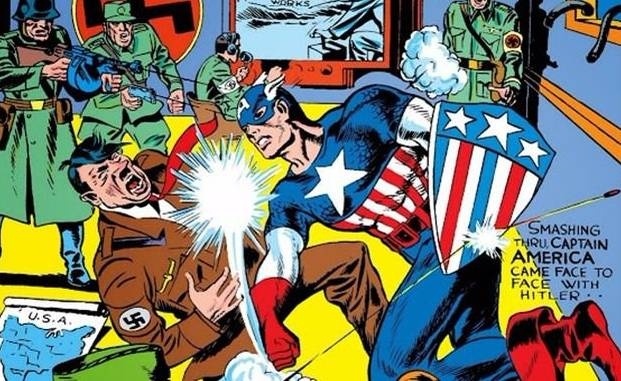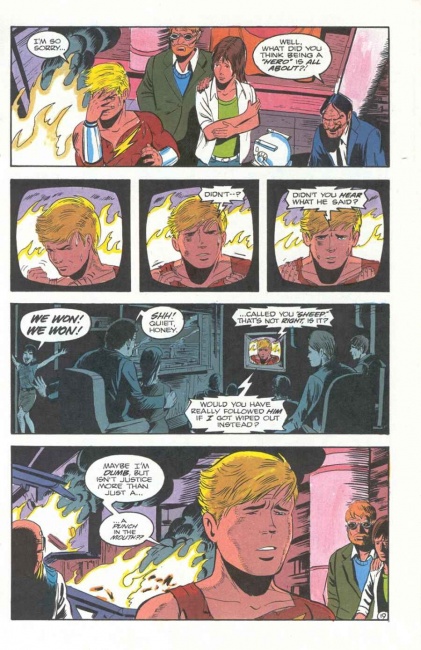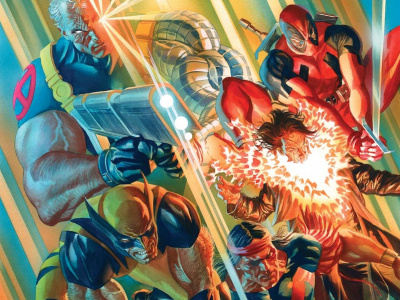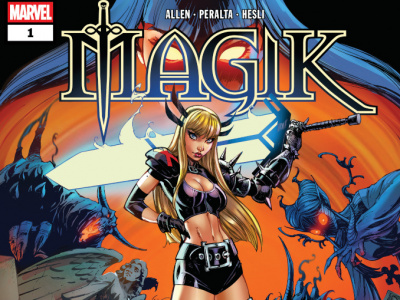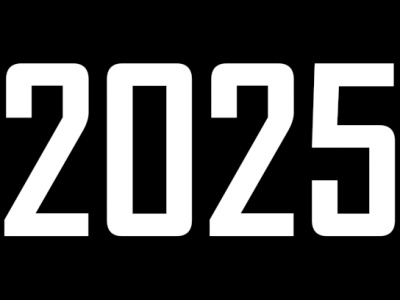Confessions of a Comic Book Guy is a weekly column by Steve Bennett of Super-Fly Comics and Games in Yellow Springs, Ohio. This week Bennett talks about the history of the national tolerance movement of the 1950s, and ponders the question, "Is it O.K. to punch a Nazi?"
It’s supposedly going viral, so I'll assume at least some of you have seen this image of Superman instructing a group of kids on the importance of tolerance. I have, and have always found it a mystery. It looks and reads like those Public Service Ads DC used to run in their comics back in the 50’s and 60’s which featured social or health-related messages for kids. But this was clearly a poster. Then I came across a piece by Lucas Reilly, “What’s the Story Behind This Superman Comic?” that appeared on Mental Floss. Along with establishing that it was drawn by Superman artist Wayne Boring around 1949, it referred to the poster as “....a relic from a largely forgotten nationwide tolerance movement that swept the country for more than a decade.”
I like to imagine I know something about the social history of America, but it was a complete surprise to me that during the 1940s my country underwent a nationwide sensitivity training program. It was in fact a “forced tolerance” movement created because “the ethnic makeup of America was quickly changing” and classrooms were “increasingly mixed with the children of different immigrant groups.” But it was also to help kids resist the influence of racist Nazi propaganda. The piece references an article that education historian Zoe Burkholder wrote in the Harvard Educational Review which says that schools were provided teacher’s manuals, textbooks, and comic books to help combat prejudice. Also, “Religious leaders, educators, and politicians stressed tolerance as a central tenet of democracy.”
The program wasn’t just for kids; adults attended tolerance rallies, and anti-prejudice ads appeared on “street cars, buses and newspapers all around the country.” In 1953, the New York Times called the campaign proof that “mass media advertising can sell an idea, just as it can sell soap or chewing gum.”
I’m also fairly certain that most of you have already heard that on Inauguration Day, Friday, January 20, white supremacist leader Richard Spencer was punched in the face by a still unknown assailant dressed in black and wearing a mask. It was hard to miss, as various versions of the video, often remixed with added musical accompaniment, have rapidly proliferated across social media. The next day the New York Times posted a piece by Liam Stack titled “Attack on ALT-Right Leader Has Internet Asking: Is It O.K. to Punch a Nazi?”
In it, Stack wrote, “Opponents of the punch tended to say that violence had no place in political debate. Supporters tended to say the punch was funny, and more than a few compared Mr. Spencer’s attacker to famous Nazi punchers from pop culture, like Indiana Jones and Captain America.”
While it might be fun to watch, the question remains as to whether it's right. The video has gone from being a meme to a national, even international (I found opinion pieces on the topic on British, Irish, Australian and Israeli online news sites) debate. Everyone from philosophers and ethicists to hip-hop recording artist Killer Mike have been consulted as to whether punching Nazis (which the internet informs me is also known as “Fash-Bashing,” “Fash” being short for “fascist”) is right.
Naturally, people in the comic book industry have chimed in as well. Writer Gerry Duggan tweeted, it’s “As American as Apple Pie,” and in his newsletter, Warren Ellis eloquently argued that “Nazis need a punch in the face.” While current Captain America writer Nick Spencer tweeted, “Today is difficult, but cheering violence against speech, even of the detestable, disgusting variety, is not a look that will age well.”
And, of course, he’s right.
It was published back in 1984, but I’ve never forgotten the key moment from issue #10 of Scott McCloud’s series Zot in which the teen hero has just defeated the vicious General Shrapp with a big cinematic roundhouse blow. It’s a standard comic book moment, but then the oppressed people of the planet he has just liberated begin worshipping him, the same way they had the fallen tyrant. Exhausted and empty he wonders, “But isn’t justice more than just a...a punch in the mouth?”
So what is the answer? The strategy most ethicists seem to agree on is people need to “name-and-shame Nazis and fascists when they -and their ideas - rear their head in public.” Which means creating real social consequences for people who use hateful language and toxic ideas and when they're expressed they need to be immediately shut down. Or, as Superman put it: “So... if YOU hear anybody talk against a schoolmate or anyone else because of his religion, race or national origin - don’t wait; tell him THAT KIND OF TALK IS UN-AMERICAN. Help keep your school All American!”
The opinions expressed in this column are solely those of the writer, and do not necessarily reflect the views of the editorial staff of ICv2.com.
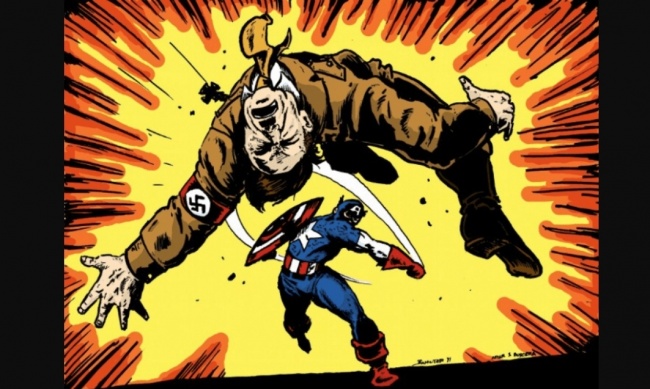
Column by Steve Bennett
Posted by Steve Bennett on January 25, 2017 @ 3:08 pm CT
MORE COMICS
Launching in February 2025 with Extra-Long First Issue, Alex Ross Cover
November 15, 2024
The extra-long first issue will be out in February 2025 and will feature a cover by Alex Ross.
From Marvel Comics
November 15, 2024
This January, Marvel's mutant sorcerer headlines her first solo ongoing series in Ashley Allen and Germán Peralta's Magik !
MORE COLUMNS
Column by Rob Salkowitz
November 12, 2024
This week, columnist Rob Salkowitz looks at some of the potential business impacts of the recent U.S. election.
Column by Scott Throne
November 11, 2024
This week, columnist Scott Thorne discusses the potential effects of President-elect Trump's proposed tariffs on imports from China.



